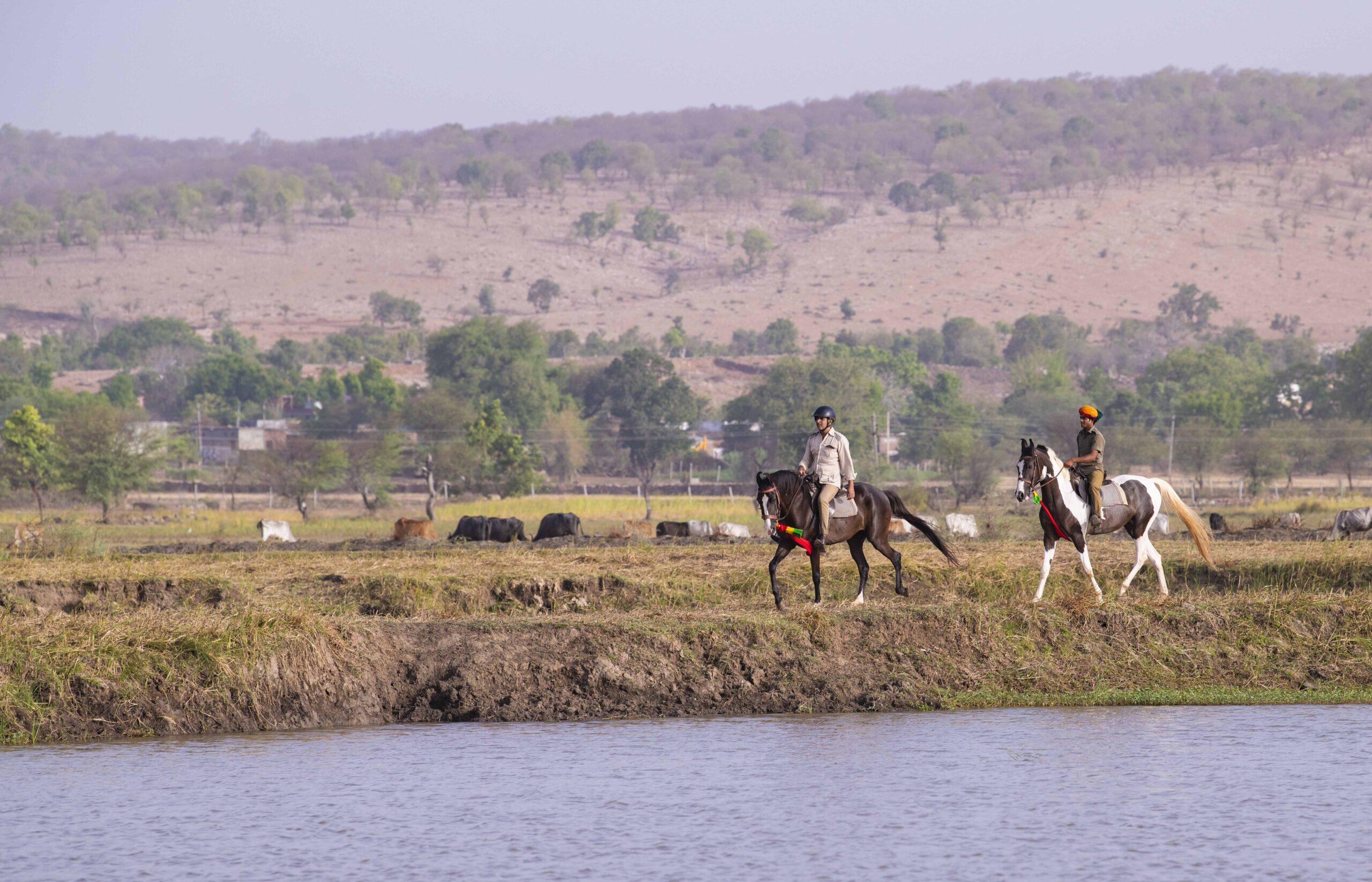
If this is your first time here, chances are high that you have picked the Big Five–Jaipur, Bikaner, Jaisalmer, Jodhpur, and Udaipur–as an introduction to Rajasthan’s incomparable heritage, tangible and intangible. In this feature, we take the liberty of adding another five, all within drivable distance from the aforementioned cities, and suggest an experiential outing or two at each for a more holistic visit.

Go with the flow at Jaipur: While it’s almost impossible to drag oneself away from the Pink City’s remarkable palaces, bazaars, and museums, we recommend you keep some time in hand for the singular Heritage Water Walks offered at Nahargarh and Amber Forts. These expert-led tours shed light on the ingenuity and sophistication of the extensive water systems built to harvest and haul precious rainwater for these royal residences. Follow the water channels to step-wells and kunds that played a significant role in water harvesting and conservation back in the day.

Art and crafts at Shekhawati: Sign up for a historian or artist-led tour of the famous painted havelis to get a glimpse into the lives of the one time owners and inhabitants of these palaces. While here, try your hand at making lac bangles under the eagle eye of a Manihar artisan, a community generationally engaged in bangle-making for its livelihood. You could also consider learning about the laborious tie-and-dye technique from master craftsmen of the Rangrez community.

The art of spin in Bikaner: Give yourself the opportunity to explore Bikaner beyond its imposing fort and grand palaces. A short drive will bring you to gritty Katwari women keeping alive the tradition of hand-spun wool in their villages. Try your hand at spinning the charkha and understand the wool-to-yarn process from these inspiring and empowered ladies. Learn how to tie a Persian knot expertly by the rug weavers you will meet here. Gather around the ever-welcoming hearths of this community for a delicious home-cooked meal, or better still, help them prepare one.

Strumming the Morchang at Jaisalmer: Swing by to the Lohar Basti of Jaisalmer, the by-lanes of which ring out loud with sounds of hammering, alternating with the twanging of a mouth harp called the Morchang. This is one of the last few places in the state where this percussion instrument, an integral part of Rajasthan’s folk dance and music traditions, is hand-made by the blacksmith community. Also known as the Morsing, its unmistakable sound is often heard in Indian film music as well as in street performances.
Shaping souvenirs at Pokhran: For an up-close history lesson, check-in at a desert fort, where the owning family still resides. Learn all about its 14th century antecedents from the horse’s mouth over a regal repast, or while strolling through its multiple courtyards, gardens, corridors and ramparts. Walk out from the past and into the homes of potters at Kumharon ki Pol, and watch them work their magic on the wheel, shaping toys, kitchenware, and decorative items. Take a lesson or two and carry back a self-made sturdy red-clay souvenir from Pokhran.

Weave a desert dream at Jodhpur: There is no dearth of activities to occupy your time when in Jodhpur; food and heritage walks, bazaar visits, craft and textile trails, sand-dune camping, you name it. Steal yourself away for a few days to acquaint yourself with the Prajapats (weaving community) of Salawas, a village not far from city lights. Stay with a local family in thatch-roofed mud-huts, the most suitable and comfortable of desert dwellings, and discover the art of weaving watching several generations of weavers work the warp and weft simultaneously to create their famed panja durries.

Meet the conservationists of Pali: Have your heritage hotel concierge sign you up for a safari to one of any number of Bishnoi villages in the district. Get to know what drives this nature-loving community, widely acclaimed as India’s earliest environmentalists. Visit their dhanis (family clusters) for a peek into their spotless and energy efficient mud homes, and enjoy a vegetarian meal with them. A friendly and educated lot, they are fiercely protective of black bucks and other animals, as instructed by Jambhoji, the founder of the Bishnoi faith.

Visit a canopy of life near Udaipur: Lose yourself amidst the lush energising canopy of a 350-acre cooperatively owned private reserve at Kemri, not more than an hour’s drive from Udaipur. This rewilding project, underway since the nineties, has not only managed to resuscitate a much degraded Aravalli forest, but also turn it into a biodiversity hotspot within just a few decades. Have a project member or a naturalist accompany you on a walking or cycling trail, enjoy a spot of bird-watching, or simply revel in some meditative forest-bathing.

Watch folktales being painted in Chittorgarh: Find your way to Bassi village where the last few custodians (less than half a dozen families) of the kavad-making tradition still live and continue, against all odds, to hand craft these unique storytelling aids. This multi-panelled cupboard-like prop, made and painted with folk stories by Basatiya Suthars (carpenters) is eventually used by the Bhats (travelling storytellers) of Marwar to regale their audiences.

Trot, canter, gallop at Bijaipur: If you love slow travel, along with all things equestrian, this outing is just a trot up your street. You get to explore Rajasthan’s southern countryside on horseback, leisurely ambling across Mewar’s beautiful terrain over several days. The less experienced can sign up for horse-riding lessons before saddling up for a cross-country canter, or simply learn a thing or two about the Marwari horse, one of only six indigenous horse breeds, from the stable-owning family.





